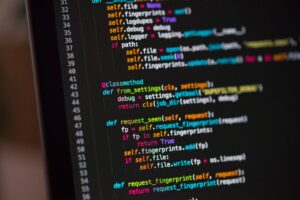Python language
Python is a high-level, general-purpose programming language. Its design philosophy emphasizes code readability with the use of significant indentation. Python is dynamically typed and garbage-collected. It supports multiple programming paradigms, including structured, object-oriented and functional programming.
Use for Python is often used as a support language for software developers, for build control and management, testing, and in many other ways.
Contents of Python Language:-
- Python Variables/ Data Types/ Python if else loops/ Python for Loop/ While Loop/ Break. / Continue
- Python Pass/ Strings/ Lists/ Tuples/ Sets/ Dictionary / Functions/ Lambda Functions/ Python Files
- Python Exceptions/ Date/ Array
- Python OOPS: – Oops Concepts / Object Class/ Constructors / Inheritance/
- Python MYSQL/ Tkinter (GUI)
- Python Tkinter/ Button/ Canvas/ Check Button/ Entry/ Frame/ Label / List box/ Menu Button
- / Menu/ Message/ Radio Button.

The huge popularity of Python programming language heavily relies on the unique features offered by it. Let’s have a look at the features of Python that set it apart from other programming languages.
I.e. SIMPLE TO LEARN, INTERPRETED LANGUAGE, OBJECT-ORIENTED LANGUAGE, FREE AND OPEN-SOURCE, HIGH-LEVEL LANGUAGE, PORTABLE LANGUAGE more contents are:-
- Introduction to Python programminglanguage semantics, syntax, runtime environment etc
- Understanding operations, functions, class defining etc
- Understanding Hadoop deployment
- Understanding machine learning algorithms in the context of Python
- Working on real-life projects running on Python
